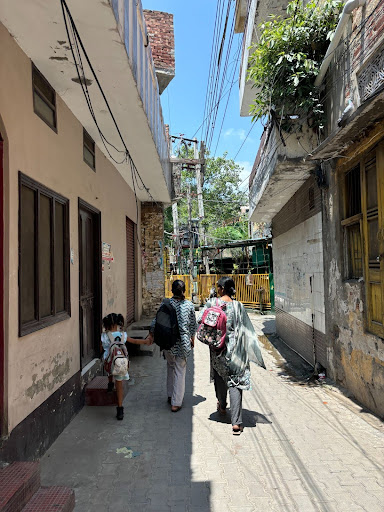My research addresses barriers to accessing treatment for opioid use disorder (OUD) among women in Punjab, India. Specifically, I aim to (1) understand how healthcare practitioners in deaddiction centers perceive and address gender-specific needs in treatment, and (2) uncover how women who use opioids in Punjab define and experience recovery, and (3) how these perspectives align with or challenge dominant addiction treatment models (e.g. 12 step and biomedical models). Since 2010, there has been a rapid increase in opioid addiction with Punjab reporting a higher burden of use compared to other Indian states. Factors contributing to increased substance use in the region include geographical proximity to drug-producing regions and cross-border smuggling, unemployment and economic distress, cultural acceptability, political corruption and ineffective law enforcement, and social stigma. These challenges coupled with increased occurrence of stress and depression, social isolation, familial and historical trauma, and lack of mental health care infrastructures contribute to the continuation of substance use challenges in the area. Although the prevalence of “deaddiction” centers in the state is on the rise, little is known about their effectiveness, particularly for women for whom treatment facilities are limited, stigmatizing, and not suited to their needs. My project directly contributes to global scholarship by advancing research on gendered experiences of addiction and recovery in Punjab, India, a region where women’s substance use has been largely overlooked. By centering the voices of women who use opioids, this study challenges male-centric narratives that dominate addiction research and treatment models.
This summer I spent six weeks in Punjab, India mapping treatment accessibility, understanding provider perspectives, capturing lived experiences, identifying gaps in treatment models, and developing a research foundation. During my time in Punjab, I worked and visited with government teams, clinics, prisons, non-governmental organizations, and local experts. I was able to speak with government officials, people who are in recovery, academics, youth, and non-profit leaders in the field of substance use and gender. Key treatment challenges included accessibility, safety, cost, trustworthiness, and interpersonal barriers. In Punjab, there is only one deaddiction center specifically for women. Many of the women I spoke to at this center reiterated the importance of opening more centers. Although there are many private centers, women shared the high cost, the lack of women present as patients and staff which can make it feel unsafe, and trustworthiness as key challenges preventing them from accessing private services. Overall, women felt unsafe in private centers as there are often males present as guards even if the center is specifically for women. Women also shared that many private centers also house men and they often have to pay extra for a separate room – increasing the cost of treatment. As many private centers do not have to undergo the same verification processes as governmental centers, women shared there is a lack of trust in the treatment process provided by some private centers. Lastly, interpersonal barriers such as navigating family dynamics, lack of access to visitation, and fear of returning to their home cities also emerged as challenges for women in recovery.
These findings provide critical insights into how existing treatment frameworks—often shaped by Western biomedical and 12-step models—intersect with local cultural and social contexts, expanding cross-cultural understandings of addiction recovery. This research also strengthens community partnerships by engaging with deaddiction centers, healthcare practitioners, and women navigating recovery. My preliminary fieldwork fostered dialogue between these stakeholders, amplifying the perspectives of marginalized women and identifying barriers to care. By building relationships with treatment providers, this work has the potential to inform more inclusive, gender-responsive approaches to addiction treatment in Punjab.
This summer I was able to gain a preliminary understanding of gendered recovery experiences, and strengthened relationships with stakeholders, laying the groundwork for my dissertation. Next summer I will be returning to Punjab to conduct in-depth qualitative interviews in the city of Moga to gain a more in-depth understanding of women’s needs more broadly including the needs of women who are caretakers for men who use drugs and women health care workers including ASHA and Anganwadi workers.
Through my partnership with the University of Michigan Library, I received support on navigating academic resources from the subcontinent and information on accessing online archives. Consultations with library specialists were invaluable in refining my literature review and strengthening the theoretical foundations of my research. Accessing digital archives was critical for my work, as many key reports, historical documents, and policy papers on addiction and treatment in Punjab were not readily available through standard databases. Library specialists helped guide me in identifying and retrieving these materials through global archives, interlibrary loan services, and specialized South Asian research collections.

On field with leaders from a local non-governmental organization on our way to meet women impacted by substance use in Moga, Punjab, India.